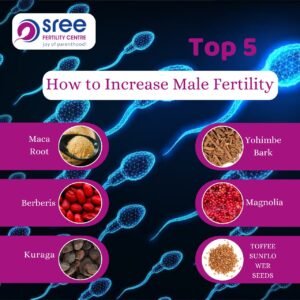1 out of 6 people face infertility issues worldwide. In these cases, people always get confused when finding out who to consult to get an effective result for their infertility. In this post, we’ll discover the major difference between gynacologist and fertility specialist, who play crucial roles in infertility treatment and the reproductive health of a patient so you must know who will be best for your issue.
Who is a Gynecologist?
A gynecologist is a doctor who identifies, detects, and treats disorders of the female reproductive system. There are multiple parts of the reproductive system such as ovaries, vulva, uterus (womb), and vagina, which create menstruation and conception. Gynecologists look at puberty and menopause issues in your reproductive health.
Gynecologist Roles:
Below are the services and tests that a gynecologist offers to the patient:
- Family planning and birth control
- Sexually transmitted diseases (STDs) Tests
- External genital tests Pelvic tests
- Treating abnormalities and illnesses of the sexual organs
- Treating issues of periods or menopause
Obstetrics (OBGYN) is the type of practice taken by some gynecologists. Menopause, reproductive oncology, reconstruction surgery, and other areas of gynecology are diagnosed by gynecologists.
Situations you need a Gynaecologist
The difference between gynacologist and fertility specialist is they both have different roles in caring for your health. A gynecologist’s main role is to focus on all important factors of a woman’s reproductive health, such as STI testing, cancer, and preventative care. If you do sex daily or weekly, you should have routine checkups with a gynecologist annually.
Moreover, you must have to visit a gynecologist if you’re facing these situations:
- You need a gynecologist for a general checkup if you’re dreaming of having a baby or have just begun pregnancy.
- You need a gynecologist for regular checkups during pregnancy, monitoring the growth and the condition of the baby.
- Irregular menstrual cycle, potential issues, menstruation cycle, and, PCOD required a gynecologist for regular checkups.
- You need a gynecologist in case of measuring to avoid pregnancy or family planning, as he/she will suggest you better.
- A gynecologist is required to understand your ovulation cycle.
Types of Gynaecologists and Their Roles
Before understanding the exact difference between gynacologist and fertility specialist, it is essential to meet the types of gynaecologists and their roles including:
- Urogynecologists
Urogynecologists diagnose bladder and pelvic problems and treat reconstructive activities to ensure the correct birth abnormalities involving the urinary tract or reproductive organs.
2. Obstetrics and Gynaecology Physician
All parts of reproductive issues like pregnancy, sex, and childbirth are treated by an obstetrics and gynecology (OB-GYN) physician. They start checkups to identify their patients’ reproductive organs are free from all problems and do tests to detect cervical cancer or sexually transmitted infections.
The pregnancy might be improved by these specialists ensuring that the fetus grows properly and then the babies are delivered on the due date.
3. Gynecologic Oncologists
Cervical, vaginal, uterine, and ovarian are the cancers of the reproductive system, which gynecologic oncologists treat. They provide surgery to remove noncancerous growths and malignant, including intraoperative traditional and chemotherapy. These specialists can also assist patients with genetic disorders and inherited diseases in understanding their risks and managing their reproductive health effectively.
4. Maternal-fetal medicine Specialist
To understand the difference between gynacologist and fertility specialist, it’s crucial to learn about maternal medicine. A gynecologist who is a specialist in maternal-fetal medicine focuses on the treatment of pregnant women. These specialists can assist a pregnant woman suffering from chronic health, as they ensure their babies develop healthily before labor.
Patients would be advised by the gynecologist on when to induce labor, what to perform within the last days of pregnancy, and how to measure the fetus’ heart rate to keep the fetus healthy. C-sections and Cesarean deliveries are also performed by these specialists.
Who is a Fertility Specialist?

After analyzing the difference between gynacologist and fertility specialist, let’s discover who is fertility specialists and what are their roles.
A doctor who has completed specialized training and medical programs in treating patients who are suffering from pregnancy or not getting pregnant is called a fertility specialist. Surgery, procedures, and medications including in Vitro fertilization, are included in treating fertility issues performed by fertility doctors.
Additionally, sperm banking and egg freezing are techniques used by these specialists to preserve an individual’s ability to have children including cancer treatment. Fertility doctors also have an exceptional understanding of pregnancy-prevention treatment that adds tubal ligation or vasectomy.
Situations you need a Fertility Specialist?
To know the difference between gynacologist and fertility specialist, you need to identify your problem and whether you need a gynecologist or a fertility specialist.
So, your doctor will advise you to meet a fertility specialist for a variety of reasons, including:
- You face different fertility problems.
- You have faced a miscarriage
- You have not conceived repeated IUI/IVF cycles.
- You want to know the reasons for failed IUI and IVF cycle
- You want to use IVF or IUI treatments.
- You have been trying to get pregnant for a long-time.
- You have not conceived because of different gynecological issues such as Pelvic inflammatory, PCOD, Anovulation, H/O Tubal surgeries, Tubal block, Hydrosalpinx, Fibroids, Endometriosis, Adenomyosis, low ovarian reserve, Polyps, Fibroids, Uterine anomalies (immunological causes, Septate, Unornate, & Bicornuate uterus, Thin endometrium, genetic abnormalities.
- If your partner has low sperm count, Erectile dysfunction, Varicocele, Low sperm motility, Retrograde ejaculation, Phimosis, Varicocele, Premature ejaculation, azoospermia, High DNA Fragmentation, etc.
Types Of Fertility Specialists and Their Roles:
There are plenty of medical professionals involved in fertility specialists. One of the best options for patients with fertility issues is determined by your medical history and needs.
- Reproductive Surgeons
The game of finding the difference between gynacologist and fertility specialist is quite hard because both have a variety of functions in the medical field. A fertility specialist might be a reproductive surgeon like a gynecologist but the difference is the specialist treats patients for reasons other than infertilty. A reproductive surgeon can remove fibroids or diagnose endometriosis surgically.
- Andrologists
Andrologists also known as urologists, received special training in treating male fertility issues. An Andrologist can detect and diagnose male fertility issues alone or in collaboration with a reproductive endocrinologist. They discuss additional to consider the best solution for low or nonexistent sperm counts and, find out a possible treatment to cure the condition, enabling the couple to conceive without IVF.
- Reproductive Immunologists
An immunologist also makes you understand about difference between gynacologist and fertility specialist. A reproductive immunologist is an expert in both immunology and reproductive medicine. If you’re suffering from miscarriage, unexplained recurrent IVF failure, or unexplained infertility, you need to consider a reproductive immunologist.
- Reproductive Endocrinologists
With the qualification in the gynecology training program, a gynecologist is converted into a reproductive endocrinologist. They can manage both male and female fertility issues surgically and medically. Plenty of fertility cases are handled by reproductive endocrinologists (REs).
Conclusion
Specialization, focus, diagnosis, treatment/services, and fertility care are the major difference between gynacologist and fertility specialist that are described in the blog. A gynecologist is a specialist in treating the female reproductive system and sexual healthcare while a fertility specialist comes with the knowledge and training of infertility and reproductive endocrinology.
Now, if you have understood the difference, then visit the best VF centre in Varanasi to get treated by certified and qualified fertility doctors. Choosing a fertility specialist in Varanasi and a gynecologist is hard for reproductive health, but the post will guide you to go with the right one.







